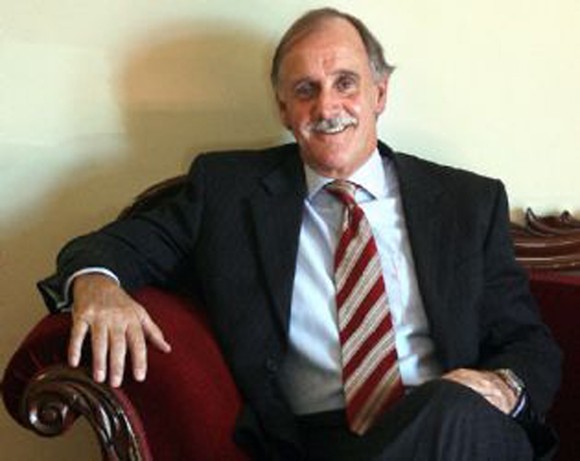THE likelihood of nationally significant legislation — for gay marriage and Tasmania’s forest peace deal — will be boosted if a new group announced today deposes a key independent MP.
The usually tame elections for Tasmania’s upper house are shaping as fierce contests, with the fate of Australia’s first gay-marriage law and the forest agreement, protecting 504,012ha, both on a knife-edge in the Legislative Council.
A community group will be announced today to campaign against a key opponent of both bills, independent Jim Wilkinson, in his Hobart seat of Nelson.
The group, Nelson Voters For Change, will be fronted by a prominent local doctor, Juliet Lavers, and will campaign for voters to dump Mr Wilkinson when elections are held for three council divisions on May 4.
Dr Lavers told The Australian that Mr Wilkinson, who voted against a gay-marriage bill due to return to the council, and who is opposed to the forest peace deal before the chamber, had become a barrier to reform.
She denied that the group, which plans to hold a press conference in Hobart today, was a front for Labor and the Greens, which as political parties are banned under state law from spending money on upper-house campaigns. “There are a lot of conservative people who are very concerned . . . about how he’s been voting,” Dr Lavers said.
“I first became concerned because I am doctor and he would not support legislation to stop political parties receiving donations from tobacco companies.”
The group would recommend voters back either of “two very good alternative candidates” in Nelson: the Greens’ Tom Baxter or independent Helen Richardson, an education union organiser.
ReachTEL polling of Nelson voters obtained by The Australian shows Mr Wilkinson is vulnerable on gay marriage, with 55 per cent backing it, and the forest peace deal, supported by 40 per cent and opposed by only 28 per cent.
His loss could tip upper-house votes towards gay marriage and the forest deal, particularly if a conservative independent takes the post of council president.
The job will be filled after the May 4 elections because of the retirement of incumbent Sue Smith.
Under Legislative Council convention, the president does not vote. This means that the loss of Mr Wilkinson — if it was followed by the election of a conservative as president — would strip opponents of gay marriage and the forest deal of two crucial votes.
Mr Wilkinson, who has held his seat for 18 years, was last re-elected with 61 per cent of the vote in 2007. However, he was accused of betraying voters after voting against the pulp mill fast-track process before that poll only to vote for the project afterwards.
Also arrayed against Mr Wilkinson is an army of gay-rights activists, who have letterboxed 40,000 homes across the three seats being contested, urging a vote for pro-reform candidates.
A separate group, Transform Tasmania Alliance, is campaigning for new blood in the upper house and has singled out Mr Wilkinson for criticism.
He accused the groups of being fronts for Labor and the Greens, claiming they were being used to circumvent a $14,000 cap on election spending. “People are starting to play dirty politics and to be cute with the truth,” he told The Australian.
Author: Matthew Denholm
Publication: The Australian
Publication Date: April 8 2013

